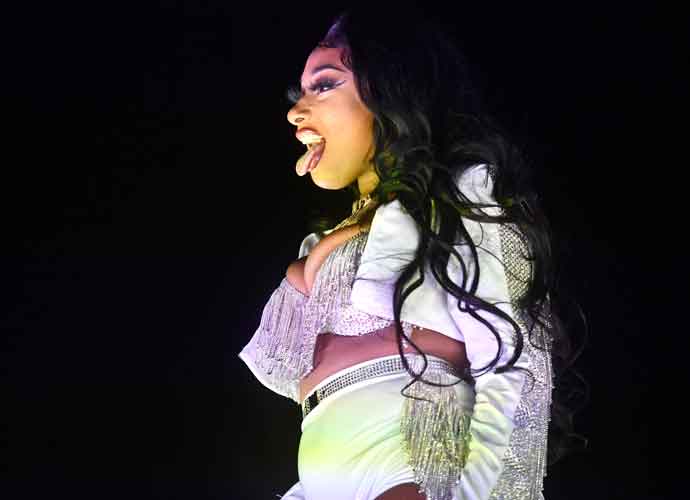Megan Thee Stallion Breaks Silence On Tory Lanez Shooting Incident, Condemns Violence Against Black Women
In an op-ed for the New York Times, critically acclaimed rapper Megan Thee Stallion reveals the details about the night when she was allegedly shot in the foot by Canadian musician Tory Lanez. The Houston rapper expressed her view on black women’s plight in America, who she says, “deserve to be protected as human beings.”
I will never stop using my voice ✊🏾Thank you to all the beautiful women involved pic.twitter.com/EnefD8XKfP
— HOT GIRL MEG (@theestallion) October 13, 2020
The piece opens with Megan reflecting on black women’s shifting role in politics within the last century, formerly barred from the voting booth to now, in her eyes, being the demographic Democrats will be depending on to win the November 2020 elections. While celebrating this fact, Megan writes, “Despite this and despite the way so many have embraced messages about racial justice this year, Black women are still constantly disrespected and disregarded in so many areas of life.”
Megan connects this disrespect toward black women as often manifested as violence, such as when she was allegedly shot in both feet by a man she was “not in a relationship” with. This man, reportedly Lanez, who has been charged formally and may face over 20 years in prison. Megan’s first public statement regarding injuries she suffered during the incident was issued on an Instagram Live video where the rapper tearfully recounted, “Thank god that the bullets didn’t touch bones. They didn’t break tendons,” she reported. “I know my mama and my daddy, my granny had to be looking out for me with that one because where the bullets hit at, it just missed everything, but the motherf–kers was in there.”
The singer notes that her initial refusal to speak on the subject came from a place of self-blame before realizing that the events that transpired that night came about due to the objectification of black women, lamenting that figures like herself and Serena Williams must combat victimization for displaying their bodies or reclaiming their sexuality. Megan also expresses bewilderment that fans and media try to pit her “against Nicki Minaj and Cardi B,” whom she claims are “two incredible entertainers and strong women.”
Megan writes that is this media treatment that she feared when she called out Kentucky Attorney General Daniel Cameron’s actions as a prosecutor in the Breonna Taylor case. Nonetheless, the rapper then called for black girls to be introduced to famous figures like Katherine Johnson, Alice H. Parker, Marie Van Brittan Brown, Patrisse Cullors, Maxine Waters “and the first Black woman to be elected to the U.S. Senate, Carol Moseley.” Closing with an endorsement for Kamala Harris for Vice President.
RELATED ARTICLES
Get the most-revealing celebrity conversations with the uInterview podcast!









Leave a comment